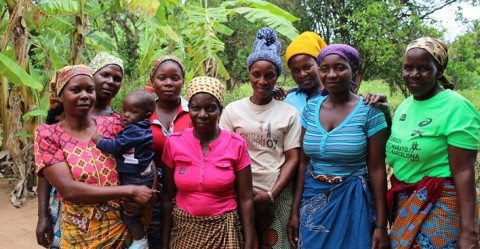
GCED Basic Search Form
Quick Search
Vous êtes ici
Nouvelles

Mozambique is a multilingual country with over 20 spoken languages. While a knowledge of Portuguese is vital to access state services, a comprehensive understanding of local languages is crucial for community participation. Considering only 17% of the population speak Portuguese as their first language, incorporating local languages into adult education and creating opportunities for bilingual teaching is key to providing relevant and inclusive lifelong learning for all.
Before the new primary education curriculum for adults and youth was developed in 2017, the only adult education programmes available were limited to basic literacy and numeracy skills. The new curriculum, developed by the National Directorate of Adult Education, with the support of the Capacity Development for Education Programme (CapED), covers six subjects, Portuguese, Mozambican Languages, Natural Sciences, Social Sciences, Mathematics and Life Skills. In 2019, CapED piloted the first year of the curriculum in five districts across four provinces (Gaza, Maputo, Nampula, and Sofala) and is currently training teacher-educators, teachers and adult educators to use the 2nd year of the curriculum.
One of the benefits of bilingual teaching is an increased commitment and retention among learners. “Individuals like what they know and are familiar with, they stay more engaged and attentive and feel respected,” explains Alcido Timba, a specialist in bilingual education from the Ministry of Education and Human Development.
Another benefit is reducing communication challenges. Zenalda Silvestre Machonga, an adult educator in the community of Nhampequene, teaches her students in both Portuguese and Changana. She explains how she uses both languages in her classes. “I use Changana as a resource to explain things that I feel they do not understand well. For example, I ask them “When the car passes what sensory organs do you use?” They first discuss the topic in their mother tongue and then we discuss in Portuguese. This methodology helps them to participate and to understand the topic.”
In parallel to implementing and testing the curriculum, CapED is building the capacities of teacher-trainers on adult education methodology and teaching in Mozambican languages. The Programme is also developing teaching and learning materials in five Mozambican languages, as well as Portuguese, and is supporting the written standardization of 19 local languages in the country.
Looking ahead, the outbreak of COVID-19 will impact the implementation of adult education programmes, especially the piloting of the new curriculum. The school and education institution closures that came into force around the country are affecting the education of millions of children, as well as 370,000 adult learners currently enrolled in adult education programmes.
As lead partner supporting the development of Mozambique’s new education sector plan, UNESCO is part of the COVID-19 technical team and the cooperating partners group supporting the Ministry of Education and Human Development to develop and implement the country’s COVID-19 Contingency Plan. The Plan provides a strategic framework to safely reopen schools and education institutions, while ensuring the continuity of education opportunities to all, particularly the most marginalized.

Participants of the training workshop for the 2nd year of the primary education for adults and youth, Chongoene IFP, Gaza Province © UNESCO
URL:
https://en.unesco.org/news/breaking-educational-language-barriers-mozambique
